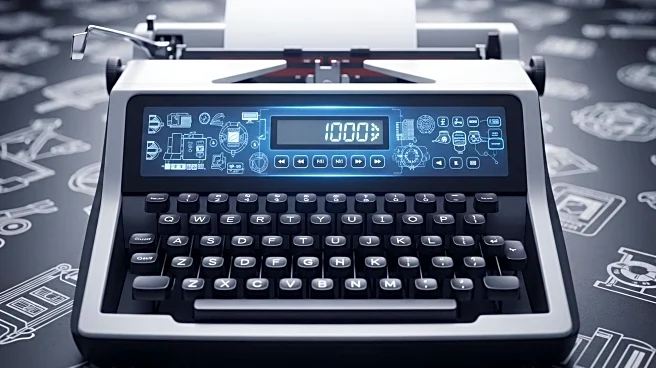What's Happening?
A recent experiment conducted by fantasy author Mark Lawrence revealed that readers preferred AI-written short stories over those penned by well-known human authors in a blind test. Lawrence's blog featured a quiz with eight short fantasy stories, half written by AI and half by authors such as Janny Wurts, Christian Cameron, and Robin Hobb. The test aimed to assess whether readers could distinguish between AI and human writing. Out of 964 participants, the results showed that readers could not reliably identify the origin of the stories, with AI stories often rated higher than those by human authors. This experiment highlights the growing capabilities of AI in creative writing, raising questions about the future of human authorship.
Why It's Important?
The preference for AI-generated stories over those by established authors underscores the advancing quality of AI in creative fields. This development has significant implications for the publishing industry, as it challenges traditional notions of authorship and creativity. The ability of AI to produce content that resonates with readers could lead to increased use of AI in literature, potentially affecting the livelihoods of human writers. Moreover, the difficulty in distinguishing AI from human writing raises ethical concerns about transparency and authenticity in published works. As AI continues to evolve, industries reliant on creative content may need to adapt to these technological advancements.
What's Next?
The increasing prevalence of AI in creative writing suggests a need for new standards and regulations to address the ethical and economic implications. Publishers and platforms may need to implement more rigorous methods to identify and label AI-generated content to ensure transparency for consumers. Additionally, the literary community might explore ways to integrate AI as a tool for enhancing human creativity rather than replacing it. As AI technology progresses, ongoing dialogue among stakeholders, including authors, publishers, and technologists, will be crucial in shaping the future landscape of creative writing.
Beyond the Headlines
The experiment highlights a broader cultural shift towards acceptance of AI in traditionally human-dominated fields. This shift may lead to a reevaluation of what constitutes creativity and originality in art and literature. As AI becomes more integrated into creative processes, society may need to redefine the value of human input in artistic endeavors. Furthermore, the potential for AI to democratize content creation by lowering barriers to entry could lead to a more diverse range of voices and stories in the literary world.









